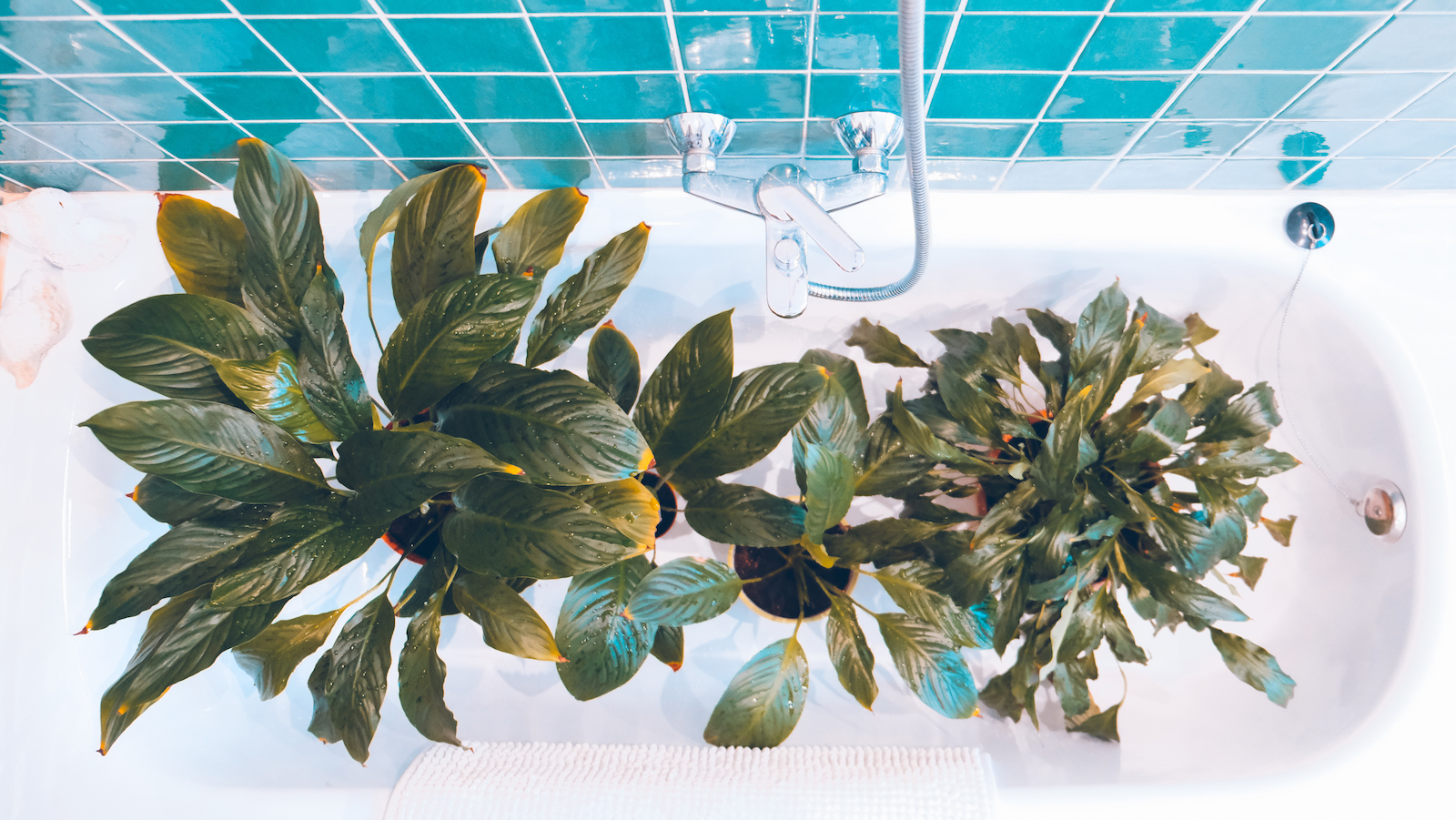

Is bathwater safe for your plants? Gardeners have long debated the question, but the answer isn't strictly black or white.
When dealing with hydrating your greenery, using bath water seems sustainable, so we've asked our plant and gardening experts if it will harm your plants, whether it's suitable and how you can utilize this source of H2O.
If you're looking for ways to improve the quality of your brilliant indoor plants, here's what to know about this practice.
Is bathwater safe for your plants?
So, is bathwater safe for your plants, or is this considered one of the worst houseplant mistakes you can make?
"Reusing bathwater, or greywater, for garden and some houseplants is a sustainable practice that can significantly save water," says Gene Caballero, co-founder of GreenPal.
Not only is this a good way to stay green (get it?), but the water itself can be beneficial when hydrating house plants, perennial plants, shrubs, and trees, according to expert gardener, Lucie Bradley of Two Wests & Elliott.
"You will find some greywater which will boost plant growth because of its nutrients," she says. "Nutrients are due to organic matter in the water, such as skin cells, nitrogen, and phosphorus, which is used in many soaps — and co-incidentally is used in many fertilizers.”
However, there are caveats to this practice, whether you're gardening in an apartment or mapping out small garden ideas.
"It's essential to ensure the water doesn't contain harsh chemicals, dyes, or heavy soaps which can be detrimental to plant health," Gene adds. "Indoor plants are generally more sensitive, and the potential buildup of salts and chemicals from greywater could lead to negative effects."
When caring for houseplants or your outdoor garden, you might be wondering what type of bathwater is suitable for giving your plant babies a sip.
"If you use mild, natural soaps, this shouldn’t be a problem," Lucie says. "However, if you are using any products in your bath that contain salt, boron or chlorine bleach, then your used bathwater could have a detrimental effect on your plants."
Jamie Mitri, the founder of Moss Pure, recommends skipping the process entirely and refilling your watering can with fresh H20. The Homarden 40oz. Copper-Colored Indoor Plant Watering Can on Amazon is a bestseller, if you're in the market for a new one.
"From my 20 years' experience, I would not recommend watering plants with bath water on a regular or frequent basis," she says. "The chemicals in soap and shampoo such as oils, carbon containing chemicals, and preservatives can damage a plant's leaves, roots, and soil."
It turns out the answer is both, yes and no, depending on which types of shampoos and soaps you use in the bath. Be mindful of what's in the water before letting your pothos, snake plants and other low-maintenance houseplants take a gulp.

Gene Caballero is co-founder of Green Pal, a platform connecting customers to lawn care experts in their area throughout the United States. With such diverse areas to cover, Gene is well-versed in specific greenery needs for various environments.

Jamie is an entrepreneur with degrees in chemical engineering and biology and an eye for design. She founded her company, Moss Pure — which features the world's only live moss air filter and stress relief device that acts as an aesthetically pleasing decor piece — at a startup competition at the Massachusetts Institute of Technology, where it took first place in 2020.

Lucie Bradley is a gardening expert with Two Wests & Elliott. She teamed up with Victorian Plumbing to uncover how bathwater affects plants' health.
Want to add some flair to your floral display? The best plants for terrariums will definitely do the trick.
Join our newsletter
Get small space home decor ideas, celeb inspiration, DIY tips and more, straight to your inbox!

Pleasure to meet you! I'm Danielle, a content editor at Real Homes who loves scoping out interior trends. I've specialized in lifestyle writing and editing for 10 years with a focus on events, food, and books, among other areas. When I'm not working, I'm usually cooking, reading, or searching for a new project for my apartment.
-
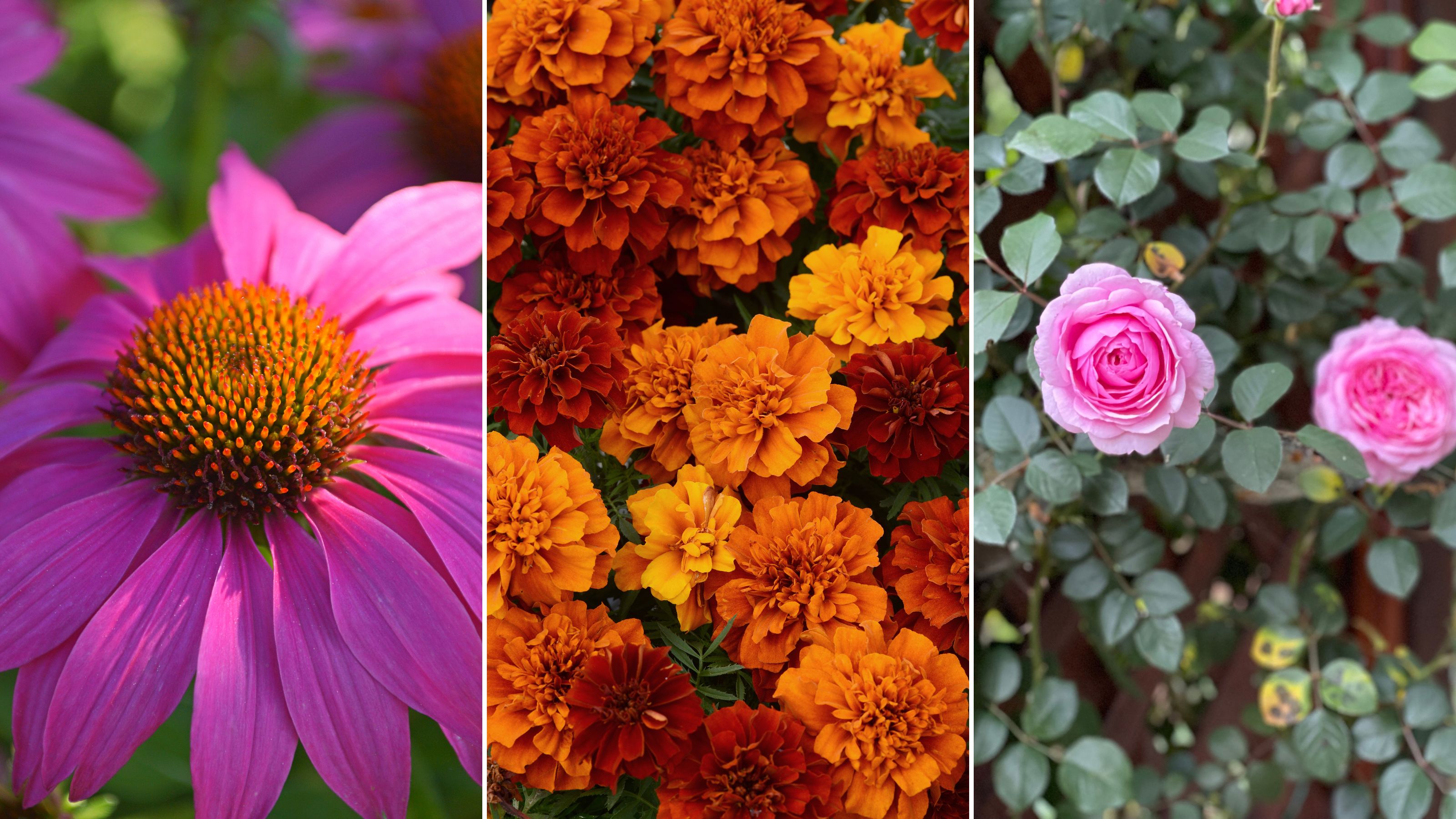 The 7 flowers to plant in August, according to gardening gurus
The 7 flowers to plant in August, according to gardening gurusKnowing what flowers to plant in August isn't always so clear-cut. But that's why we called in help from pro planters — here's what they said to pot.
By Becks Shepherd
-
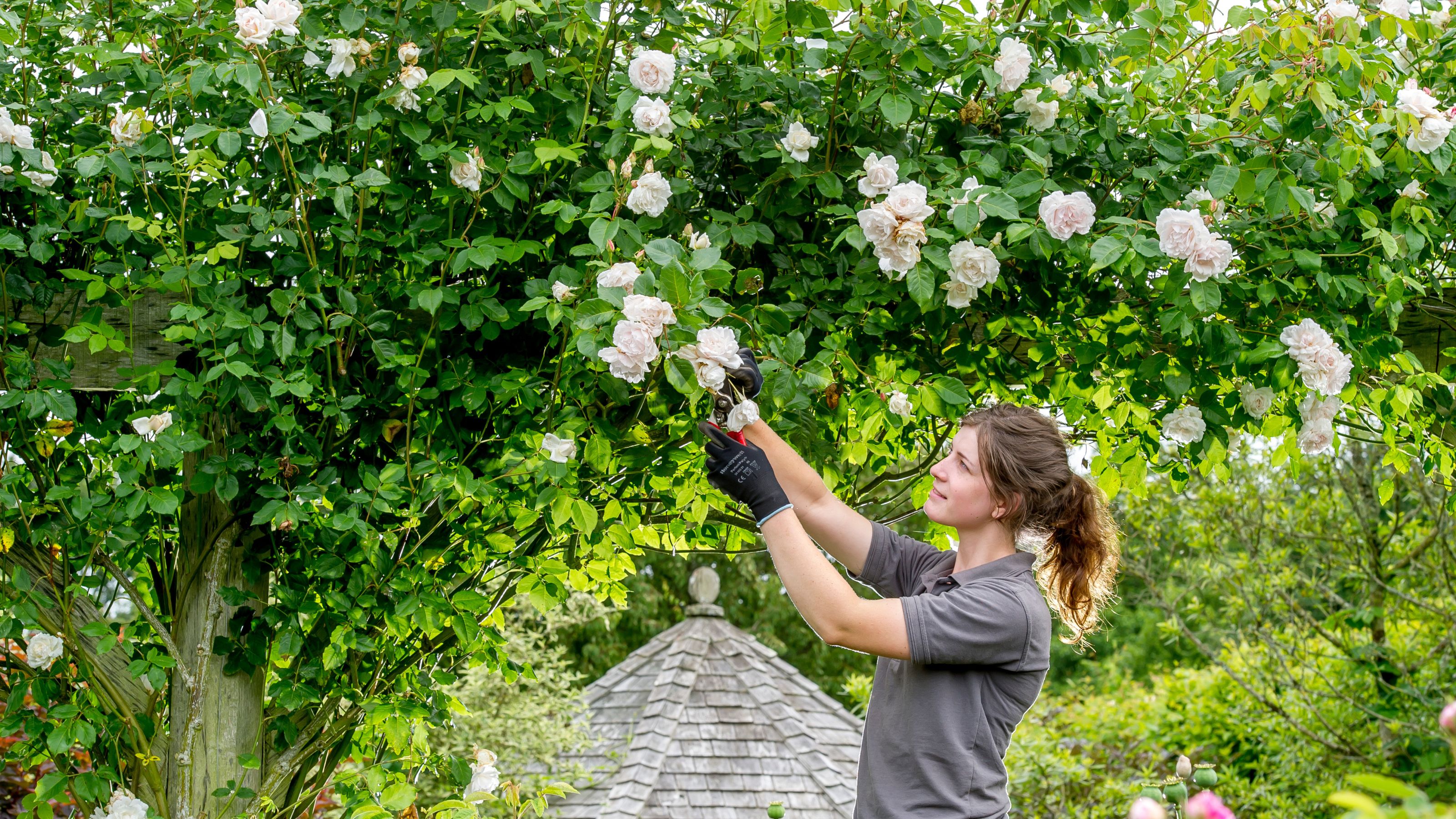 The 7 plants to prune in August — and the 2 pieces of greenery you shouldn't touch
The 7 plants to prune in August — and the 2 pieces of greenery you shouldn't touchWondering what plants to prune in August? We asked a gardening expert for their top tips plus info on what pieces of greenery to avoid pruning this month
By Becks Shepherd
-
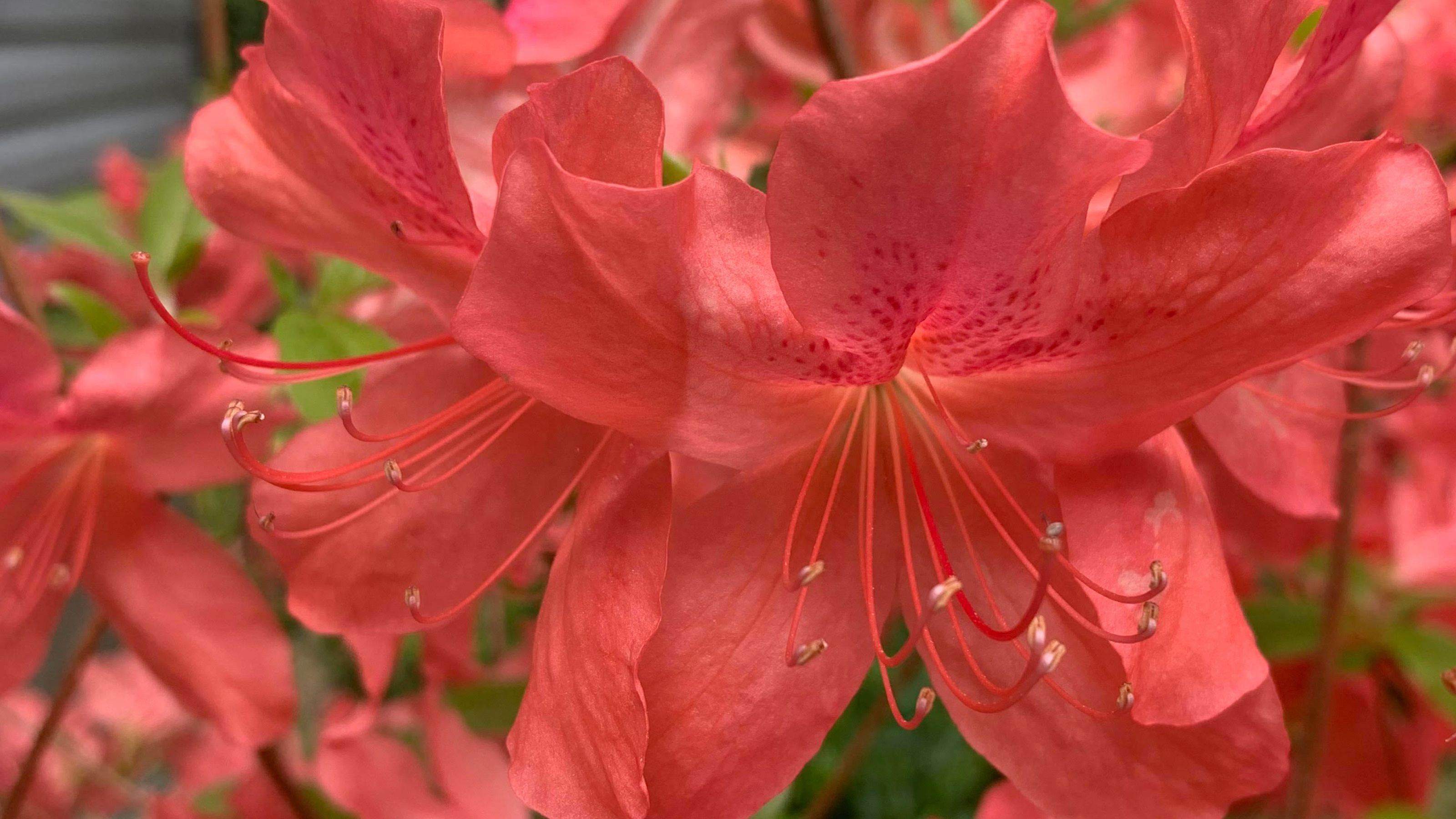 Do you need to deadhead azaleas? Top tips for pruning these flowering shrubs
Do you need to deadhead azaleas? Top tips for pruning these flowering shrubsWondering whether you need to deadhead azaleas? We asked a gardening expert for their top tips for looking after these blooms
By Becks Shepherd
-
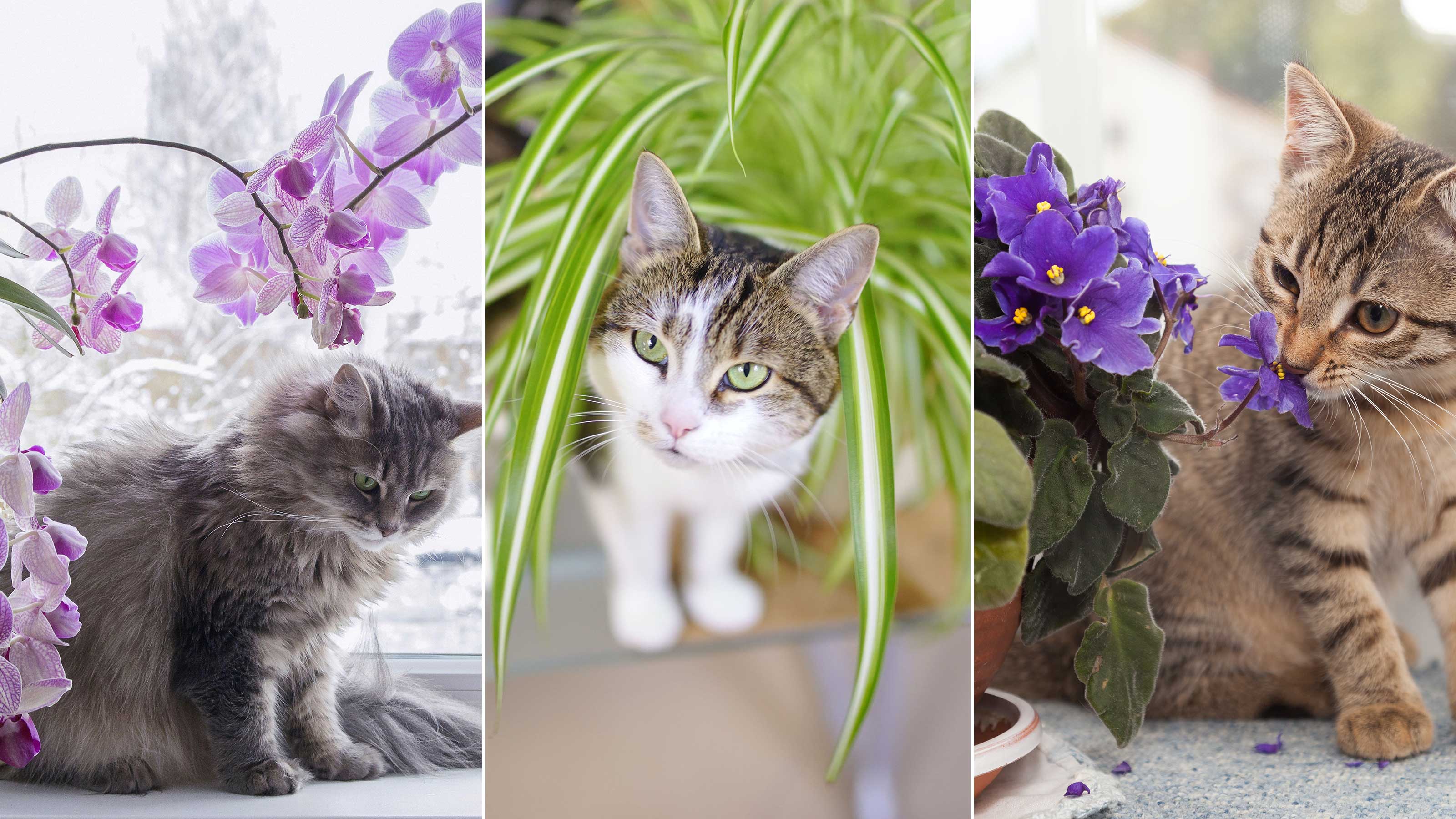 10 houseplants that are not toxic to cats — plus expert advice on keeping your pets safe
10 houseplants that are not toxic to cats — plus expert advice on keeping your pets safeKeep your four-legged companion safe by choosing these houseplants that are not toxic to cats, and learning the dangers of those that are, according to veterinary experts
By Holly Crossley
-
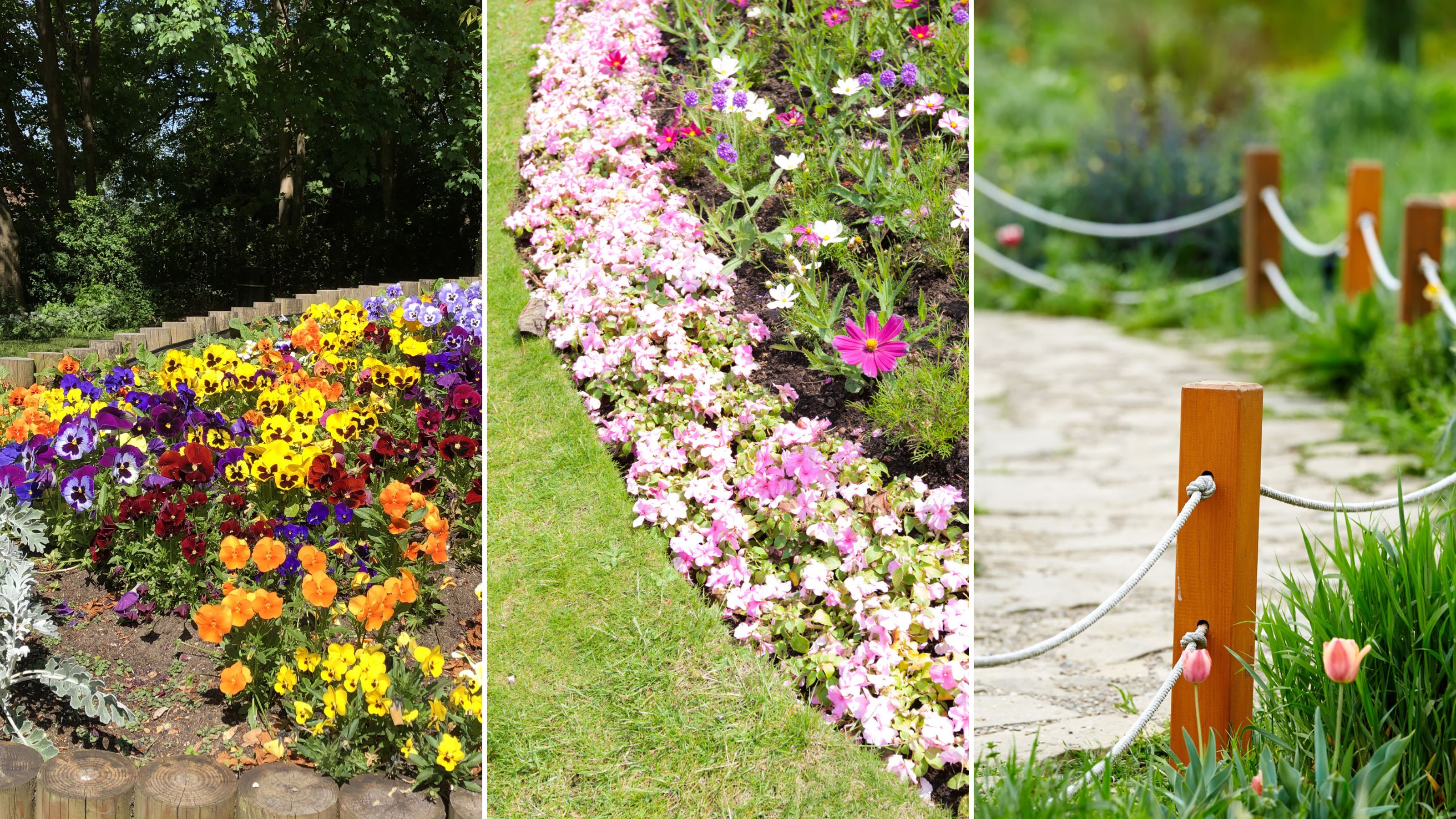 14 lawn edging ideas that will add definition and style to your backyard
14 lawn edging ideas that will add definition and style to your backyardWant to neaten up your lawn with lawn edging ideas? From fresh flowers to laidback bricks, we've scouted out materials and styles that look brilliant
By Eve Smallman
-
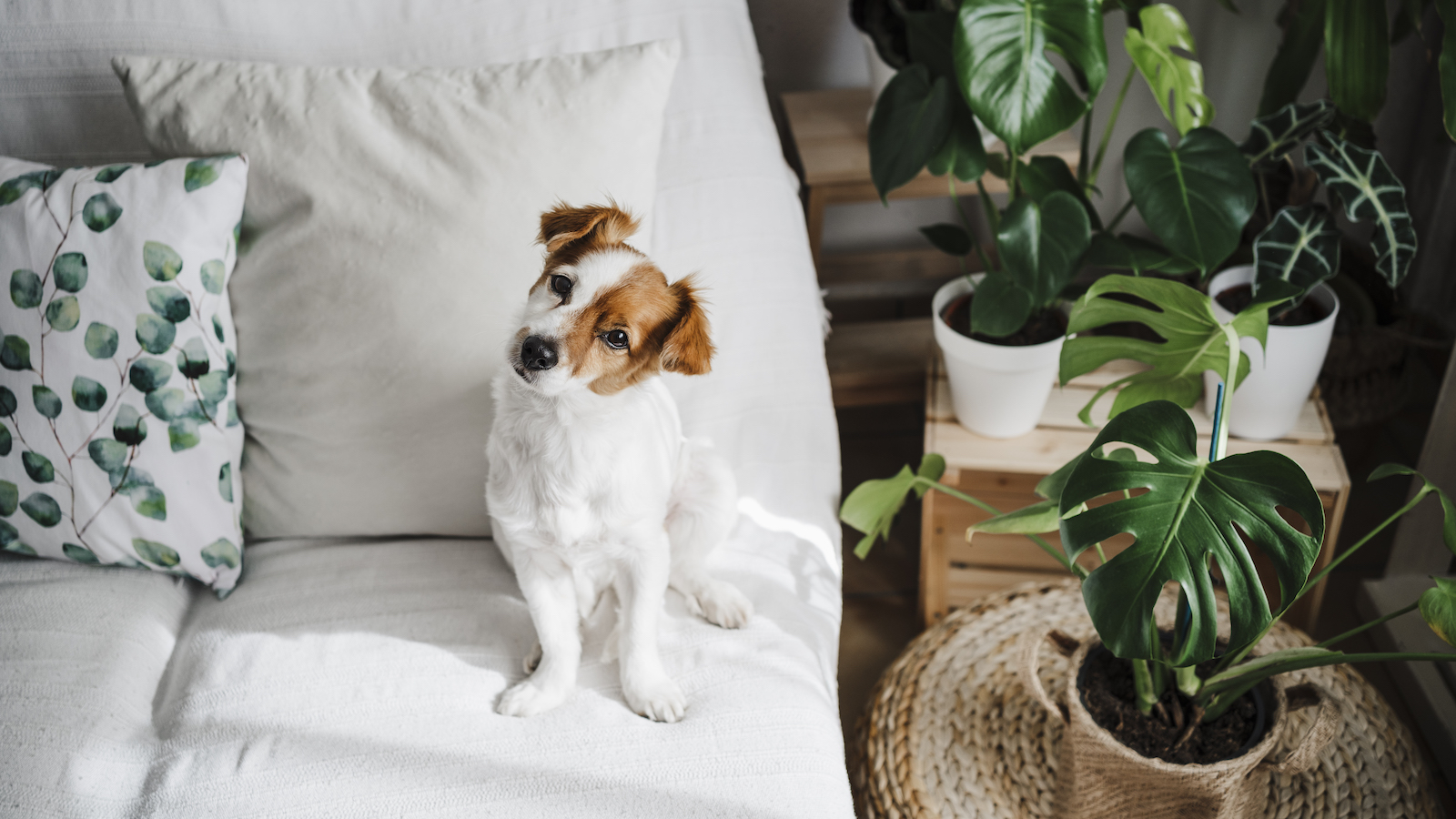 Which houseplants are toxic to dogs? Vet experts pinpoint problem plants and solutions
Which houseplants are toxic to dogs? Vet experts pinpoint problem plants and solutionsWondering Which houseplants are toxic to dogs? We spoke to vets about the problematic leafy greens, what they trigger in dogs, and how to find a solution
By Danielle Valente
-
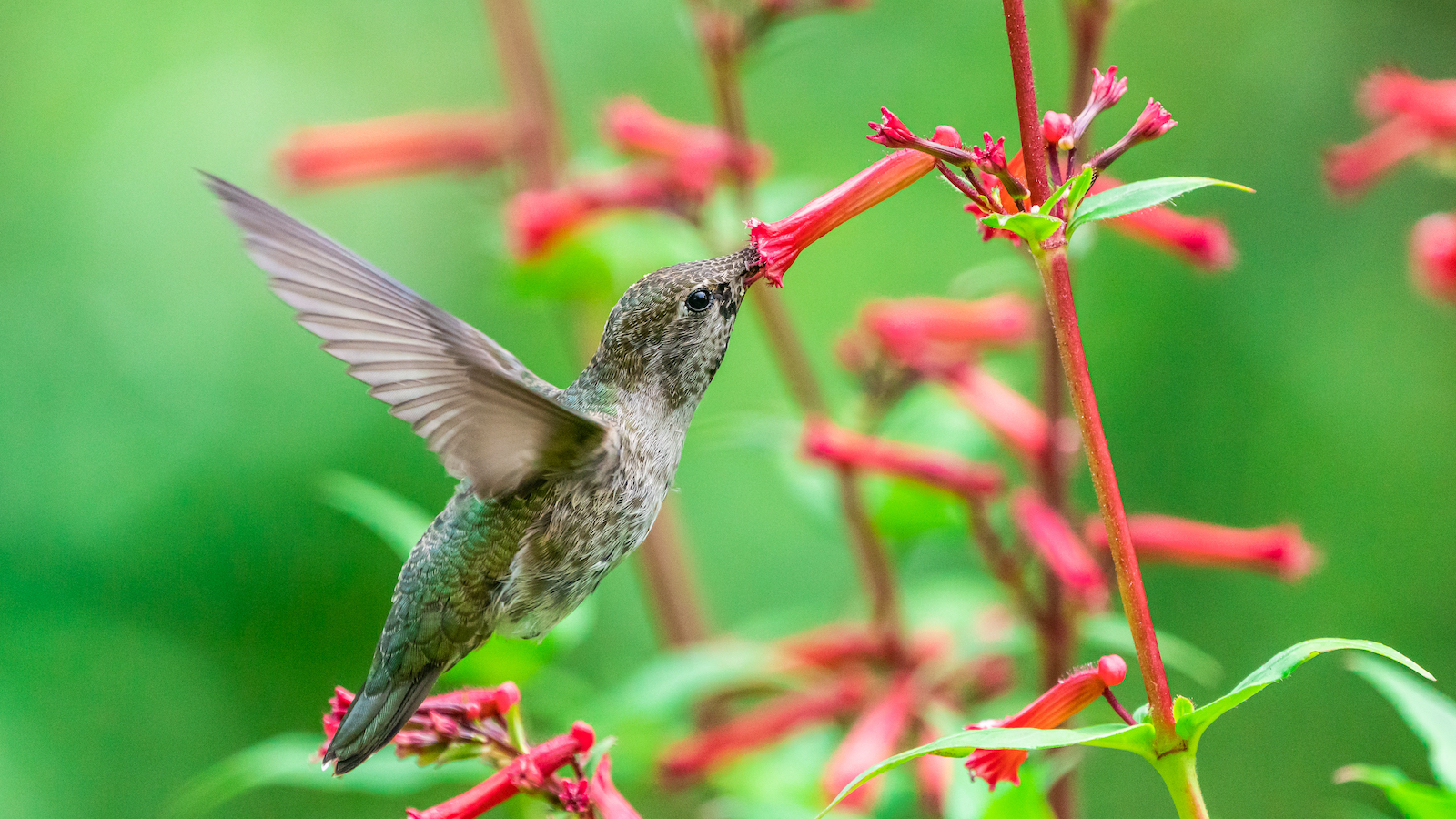 How to attract hummingbirds to your backyard, according to ornithologists
How to attract hummingbirds to your backyard, according to ornithologistsTrying to figure out How to attract hummingbirds to your backyard? These ornithologist-backed tips will guarantee you visitors in no time
By Danielle Valente
-
 Does hydrangea bloom every year? Pros spill the dirt on the "garden favorite" and when to expect it
Does hydrangea bloom every year? Pros spill the dirt on the "garden favorite" and when to expect itWondering, "Does hydrangea bloom every year"? We asked the pros all about the garden favorite and how often to expect them — here's the dirt.
By Danielle Valente